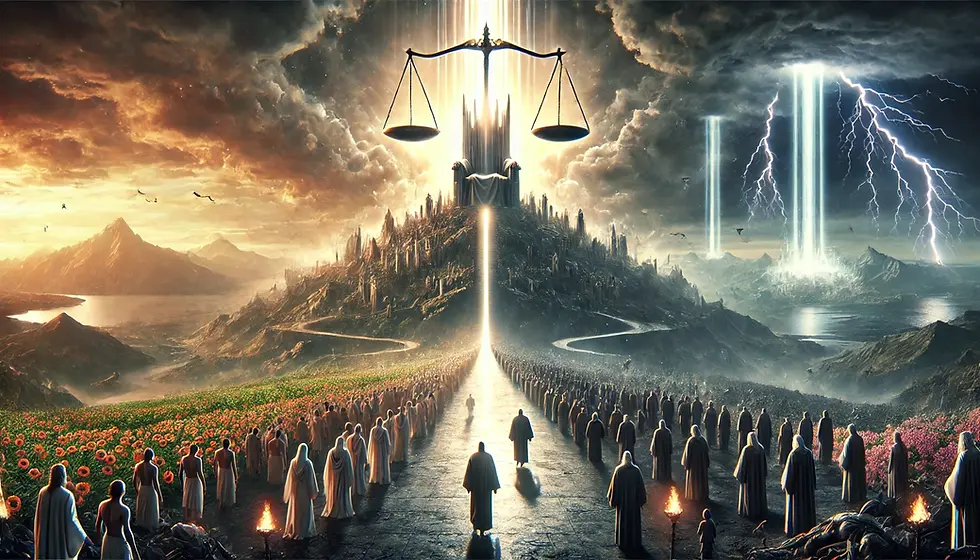Grappling with the Challenge of Comprehending God
- Edward D. Andrews

- Dec 29, 2023
- 2 min read
We address the inherent challenges and complexities in human attempts to comprehend and understand the nature and identity of God fully. This exploration is crucial for acknowledging the limitations of human understanding while seeking a deeper knowledge of the divine.
The Inherent Limitations of Human Understanding
Understanding God's true nature is a profound challenge due to the limitations inherent in human perception and language:
Transcendence of God: God’s nature is often described as transcendent, existing beyond the physical and comprehensible universe. This transcendence poses a significant challenge to human understanding, which is typically confined to the physical and experiential realms.
Language and Conceptual Limitations: Human language and concepts, while useful, are ultimately inadequate for fully encapsulating the totality of God's nature. The finite nature of human language struggles to convey the infinite aspects of the divine.
The Role of Scripture in Revealing God
Despite these limitations, Scripture plays a vital role in revealing aspects of God’s character and will:
Biblical Revelation: The Bible provides the primary means through which God has chosen to reveal Himself to humanity. This revelation, though partial, offers significant insights into His attributes, actions, and intentions.
Progressive Revelation: The understanding of God's nature as revealed in Scripture is progressive, unfolding from the Old Testament to the New Testament, culminating in the person of Jesus Christ.
The Mystery of God's Nature
The concept of mystery is integral to understanding God’s nature:
Mystery in Theology: The mystery of God acknowledges that while certain aspects of God’s nature are revealed, others remain beyond human comprehension. This mystery invites humility and awe in the pursuit of theological understanding.
Faith and Reason: The pursuit of understanding God is a balance between faith and reason. Faith accepts the mystery and sovereignty of God, while reason seeks to understand and articulate the revealed truths about God.
Human Experience and the Divine
Human experience plays a role in shaping our understanding of God, though it must be aligned with scriptural revelation:
Personal Experience: Personal experiences, including prayer and spiritual encounters, can provide valuable insights into the nature of God, though they must be evaluated in light of biblical truth.
The Role of the Church and Tradition: The historical experience of the Church and the development of Christian tradition also contribute to our understanding of God, offering a communal and historical perspective that complements personal experience.
Conclusion: Navigating the Complex Journey of Knowing God
Understanding God is a complex and profound journey, marked by both the revelation provided in Scripture and the inherent limitations of human understanding. This journey requires a balance of humility, faith, and diligent study, recognizing that while we can know God truly through His revelation, we cannot know Him exhaustively.
About the Author
EDWARD D. ANDREWS (AS in Criminal Justice, BS in Religion, MA in Biblical Studies, and MDiv in Theology) is CEO and President of Christian Publishing House. He has authored over 220+ books. In addition, Andrews is the Chief Translator of the Updated American Standard Version (UASV).




Comments